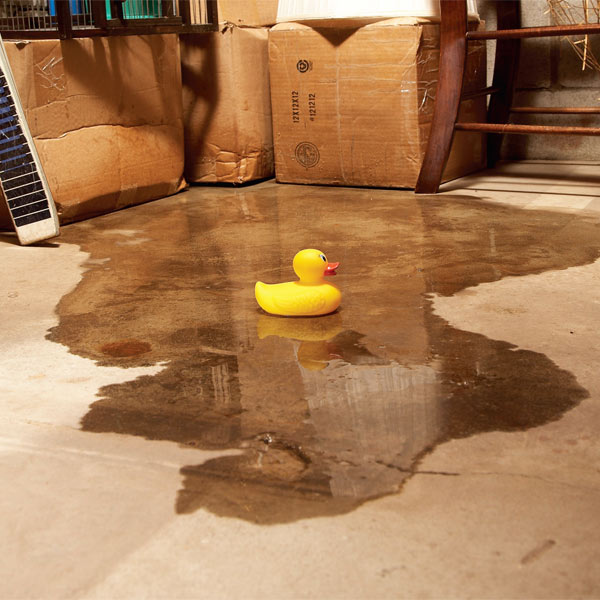 Guest Blogger: Mark Madans
Guest Blogger: Mark Madans
It is every homeowner’s nightmare, you go downstairs to your basement and the floor is wet or worse the entire area has flooded. Well, you are not alone, the American Society of Home Inspectors, based in Des Plaines, IL, estimates 60 percent of U.S. homes have wet basements, and 38 percent run the risk of basement mold. But a wet floor is not the only indication that you may have a problem. Other signs to look for include: musty odors, rusty metal, dampness on walls, white powder on walls or floor, and bowing or buckling of doors. So now what do you do?
First: Remove the Water
The first thing you need to do is get the basement dry. Moisture will not only cause damage to your home, such as wood rot, warped flooring, termites (they need the moisture), and foul odors, but it can also cause serious health problems due to mold build up. Depending on the amount of water that needs removing, you can try to dry the area yourself using wet-vacs, fans, de-humidifiers, and opening doors and windows. However, most often the most expedient method is to use a professional to remove the moisture. Many of these companies have high powered equipment that will remove water faster and potentially prevent mold from forming at all. Water removal is not only going to be from the floors; walls, especially at the base, will need to be checked and dried. As an added value, many professionals are EPA certified making them experts on checking for and removing mold. One caveat to consider is if you do not know the cause of the leak or its location, bringing in a contractor that can remove the water and determine the cause maybe beneficial for your home short and long term.
Second: Find the Cause
Wetness can be the result of a number of different issues. The causes can range from a leaky pipe to poor drainage to foundation settling.
- A leaking or busted pipe is usually a simple repair and can be handled by a plumber, although to prevent further water damage turn off the water supply as soon as possible.
- Drainage issues can be the result of poorly placed downspouts, landscape grading, and blocked or clogged drains. Roofers, landscapers and foundation repair contractors are best suited to handle these issues. It is usually best to start with a foundation repair expert determine the cause (if it is not obvious).
- The most concerning source of water damage deals with foundation settling. Foundation settlement and movement can be caused by building on expansive clay, compressible or improperly compacted fill soils, or improper maintenance around foundations.
Fixing these problems, often requires work completed both inside and outside of the structure to provide a complete solution that will last. Filling in cracks related to foundation settlement provides a temporary solution, but the combination of moisture with normal expansion and contraction, usually causes these fixes to fail.
Third: Selecting a Contractor
As with most home repair jobs, if a contractor sits down with you and cannot logically explain the problem and the solution to you, they either do not understand it themselves or they are just trying sell you on their solution. Fixing your home foundation is not brain surgery, most problems you encounter will not be new to an experienced contractor. It may seem confusing at first, but anyone who has a good understanding of foundations, the building envelope, and the soil should be able to explain it in a logical and understandable fashion.
About the Author: Mark Madans is the owner of HOCOA-GA which is a home repair referral network for homeowners. One call for all of your home repair needs. We help homeowners alleviate the stress and hassles of finding qualified, insured, contractors for home repair and maintenance. There are now over 20 HOCOA franchises coast to coast. Find one in your area today.


